Sarah Abouelkhair is a 24-year-old multi-hyphenate; an architect-entrepreneur-game designer trying to link her passions together while running Egypt’s most popular card game company 2ool AMeme and getting her Master’s in Architecture from Columbia University.
2ool AMeme is one of Egypt’s most popular new card games, using memes as the basis of the game. Over seven months, they’ve gained almost 45,000 Instagram followers and have sold out of every game launch within minutes. Abouelkhair spoke with Egyptian Streets about her seemingly unrelated passions and her thought process throughout her career as a creator.
ES: Sarah, you’re a multi-hyphenate, what do you identify yourself as? Architect? Game designer?
Abouelkhair: Your question hit a very sensitive place where I’m still trying to identify. But so far, I feel like I identify as a creator, I really enjoy creating things. At the surface, architecture and game design seem like very different things. But at the core, what we do in architecture; we’re trying to curate experiences, and to design places that, for example, can foster social interaction, creating spaces that make people experience life in a different way. What we’re doing in game design is currently very similar. We’re trying to think of new ways of social interaction; new ways that people can come together and do something.
It’s this social aspect and creation that really draws me to both fields. And to be honest, at the beginning, it was a means towards an end, creating games was just to get me through grad school. But it became a passion, I discovered something within myself that I’m really good at. Right now, I don’t see it as something that is on the side, but something that is just as important to me as architecture, because I see a future where both of them can come together. Not right now, the picture isn’t very clear to me right now, but I really believe that they will merge together somehow in the future.
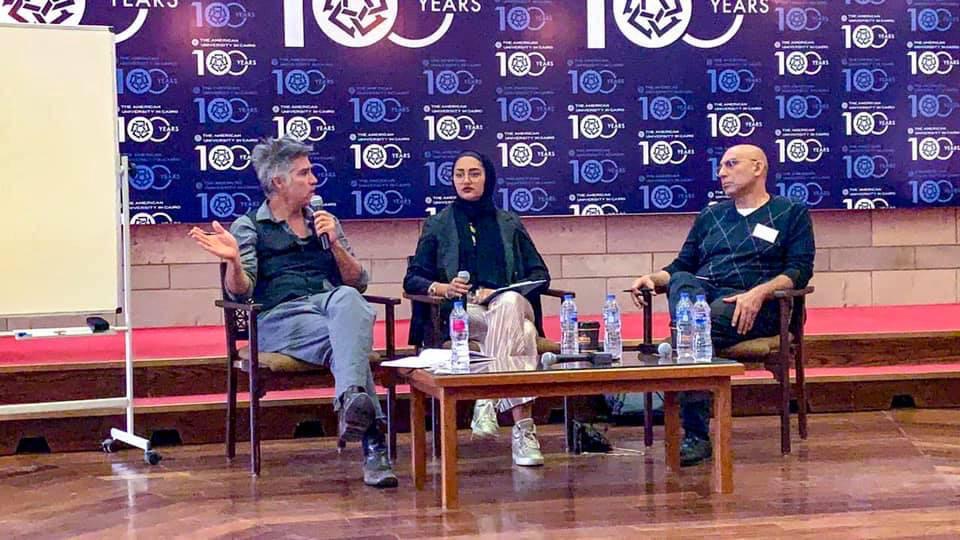
I also consider doing business because I really love entrepreneurship. During my years at AUC, I competed for four years in the Hult prize, a social entrepreneurship competition. So when you ask me how I define myself, I still think entrepreneurship should be in the image, because it’s something that I’m really passionate about; building businesses and really knowing how to connect to your customers. So maybe in the future, I’ll create a hybrid of all three interests of mine. And this would be something new of its kind. We’ll see.
What was your university experience like?
My university experience at AUC was all over the place, I was the person who tried everything. I participated in so many extracurriculars like Entrepreneurs Society, Mashrou3 Kheir, and then I also worked up since I was a freshman in the Architecture Association (AA), until I eventually became president. I also did a consulting competition, where teams of interdisciplinary students would come together and try to find solutions for big problems, in Concordia in Montreal.
The three underlying interests are in all the activities that I’ve done, so I feel like university really expanded my horizons. It also gave me more power so that I can express myself because all of these extracurriculars had a very vocal aspect to them. You have to talk and really express yourself, you have to go and talk to older people, to people in power which really builds up character. I’m very grateful for that experience.
What inspired this love of architecture for you?
I was a very creative child. I’d always be imagining things and drawings. It’s very cliche to say this because every architect says this, but it is true to most of us, but I think the moment I decided to be an architect was when my father told me about Zaha Hadid. I was so inspired that a woman, an Arab woman, can achieve all of this. It was more about her than her work, since I wasn’t in the critical mindset back then to really look at her work from a critical perspective. But I was just fascinated by the really dreamy curvy lines that she built and made a reality. And I just thought she was a boss, to be honest. This is when I realized I want to be a boss just like Zaha Hadid. I was in grade nine at the time.
What attracts you most within the field of architecture?
I did many internships and I practiced for almost a year at one of Egypt’s best design firms, and I’m very grateful for that experience. But at the same time, it made me realize that the architecture that we study and the architecture that we preach for, that’s for justice, social impact, tackling climate change and for advancing humanity overall, everything that we’re learning, these noble ideas are completely thrown in the garbage.
Architecture has lost its humanity somehow in Egypt, and it’s just turned into focusing on which building is optimized for revenue and which building you can get more money out of. Which building can I rent faster? Which residential compound will sell out faster and become more hip? This is where we’re at right now.
So, I’m very interested in the intersection between architecture and real estate. How can we put architects in a position where they have more power than real estate? Should real estate and architecture become one? Can an architect have a real estate development firm, where they actually build for impact and build real environments with social solutions that actually make a difference, rather than make the rich grow richer?
This is the topic that I’m trying to study right now at Columbia University. And this is what I aim somehow in the future when I come back (to Egypt) and be even more knowledgeable, to try and tackle and dismantle. I know that change comes with time, and I can’t be like, “oh, this is something I want to completely overthrow” because you also need to understand that this is how the world runs. People who have the money and power take the big shots.
What pushed you to start 2ool AMeme?
2oola AMeme started as a completely money led venture. It started by me and my first partner Abdelrahman Khaled saying, “we need to raise funds. How are we going to do that?” It was more of an equation for us. It was at the beginning of quarantine when it was just announced that we are going to be spending the next few months at home. And we thought, we see a great opportunity in this, how can we monetize this?
View this post on Instagram
I thought, what do people do at home? We kept breaking it down into activities, seeing each activity and how it’s monetized. With all this time spent at home, we must be in dire need for entertainment and human activities. Given that also, you’re probably at home with your family, and you probably know how disastrous that can be, how many fights can emerge from just being locked in the house with a family for months on end.
What brought on the connection of memes with a card game?
We thought that everyone was at home just on Facebook sharing memes. It’s a very big part of our culture, we just share memes about everything, any disaster that happens, we’re just sharing memes. So we wanted to gamify that process, and to bring the family together in the house during quarantine. We thought of creating this very interactive card game that the family can play together inside the house while quarantining.
At my old job, I had a coworker called Yasmine Ammar who I thought was an expert on memes so I told her about the idea and she was interested. At the time we did not expect all of the success. We were just thinking very straightforwardly, we were just doing this for quarantine, but then the game exploded.
Tell us about what those first few weeks were like.
When we launched, we sold out within minutes. Every launch, we sell out. We used to sell really large batches within just five minutes of launching, and they’d be sold out completely. And we started really going with the momentum until we started really enjoying it, we started finding bigger print houses. We actually hired someone for the logistics. And we started actually being chased by courier services, because we got the reputation of being that company that gives a really large amount of orders per week, until we optimized our pricing.
We actually developed a company called Trine Labs, legally, and now we’re completely legit.
I really think there is something there and not just in card games and board games, but in the idea of gamifying experiences and social entertainment.
View this post on Instagram
When 2ool AMeme started becoming popular, what did you imagine its future would be?
We got excited about the potential especially because it wasn’t just the game becoming popular, it was the market disruption that happened. When the game became popular, I swear more than 60 other games started emerging that didn’t exactly have the exact concept, but were also social games or strategy games. This made us realize that there is a huge market gap.
People want social games, people want to be entertained. And all of the games that we grow up playing are not tailored to us, like monopoly, UNO, Face 10. They’re great games, but they’re not tailored to our culture, they are not culturally relevant for us, we cannot relate to them. We just play them because they are all that’s available. I think this time is over with the emergence of so many Egyptian bred social games, and strategy games as well. So I see a huge shift away from the traditional adapted Western games to emergence of really fresh, exciting, Egyptian bred games that can even expand through the Middle East.
Our mindset shifted, we wanted to take it to a completely next level. We wanted to create something that is really unique, something that caters for our culture, and that the teenagers or young people would really enjoy playing. And something that’s really well designed.
What was different about the new game?
Our new game 2ool aw E3mel; from the way the box opens, to the card that is actually socially generated by the people, created so much interaction beyond their imagination. We got more than 5000 submissions to have people actually trying to participate in creating the game, which created so much social buzz and so much autonomy over the game. So, people think “wow, I participated in creating this game”, which led to a huge success. Because everything was built around our audience and those youngsters who really wanted a form of entertainment.
You couldn’t go out in a place in Sahel without seeing someone playing it on the other table, and I really enjoyed everyone just sending pictures of how they see this game everywhere. The reason for the success of this game is that it wasn’t just built in space. It was built with our audience really in mind in every word, and every step. Even the box opening is very instagrammable, which people really enjoy sharing on their stories. The cards themselves say ‘go live’, ‘put this on your story’, ‘do a TikTok. It’s what people already do, but gamified.
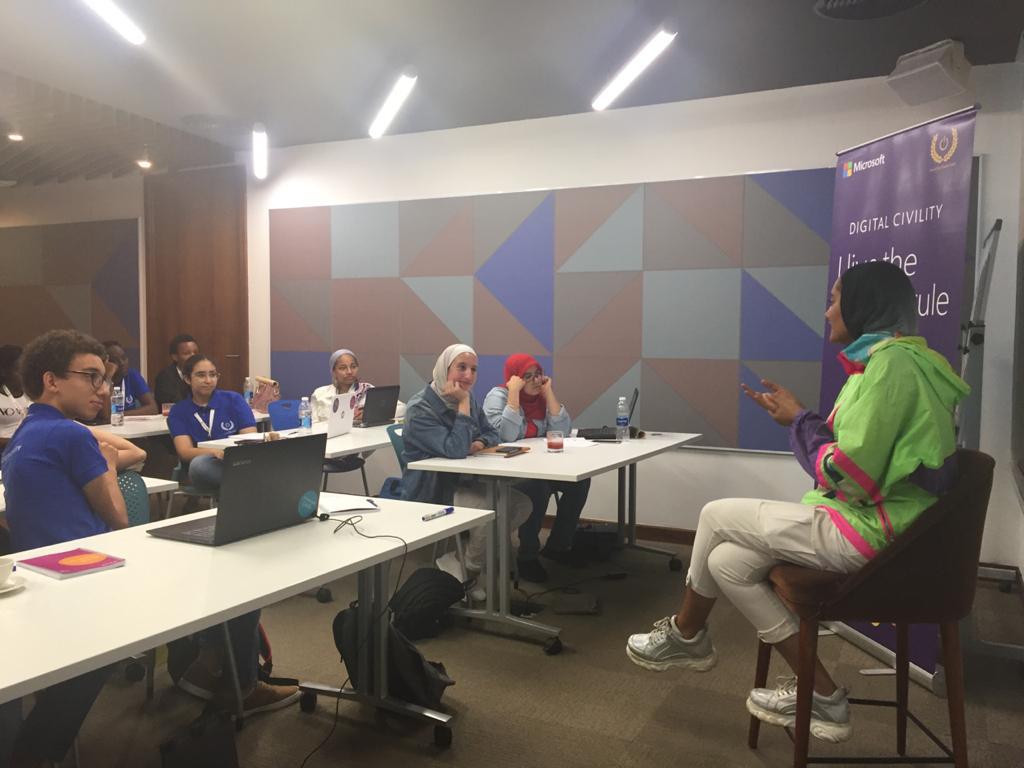
In October 2018, Abouelkhair pulled a social experiment on Instagram that rose her to social media fame. It started with her proposing a giant BBQ to NASA during their SpaceX launch, and then pretending that NASA and many major companies including Buzzfeed and Netflix as well as Ellen DeGeneres were interested in her idea. She later confirmed that the messages from these companies were fabricated by her to see if the majority of people would believe her.
Did 2oola AMeme’s success have anything to do with your initial NASA social media stunt and your social media persona?
The NASA experiment was my first debut as a storyteller, and this is a big part of how I also identify myself because when I’m creating something, it’s always about the story. How can we create an exciting story? How can people empathize with us through our story?
It was my first experience in telling a good story, and then having millions of people engage with that story.
It was my moment of awakening where I thought, wow, I’m really good at building narratives, which relates to both architecture and creating games in a major way. Because this is all about storytelling, creating narratives, and both of them ending up into a physical manifestation of that. Of course, it definitely helped me discover things about myself that I did not know how to articulate before.
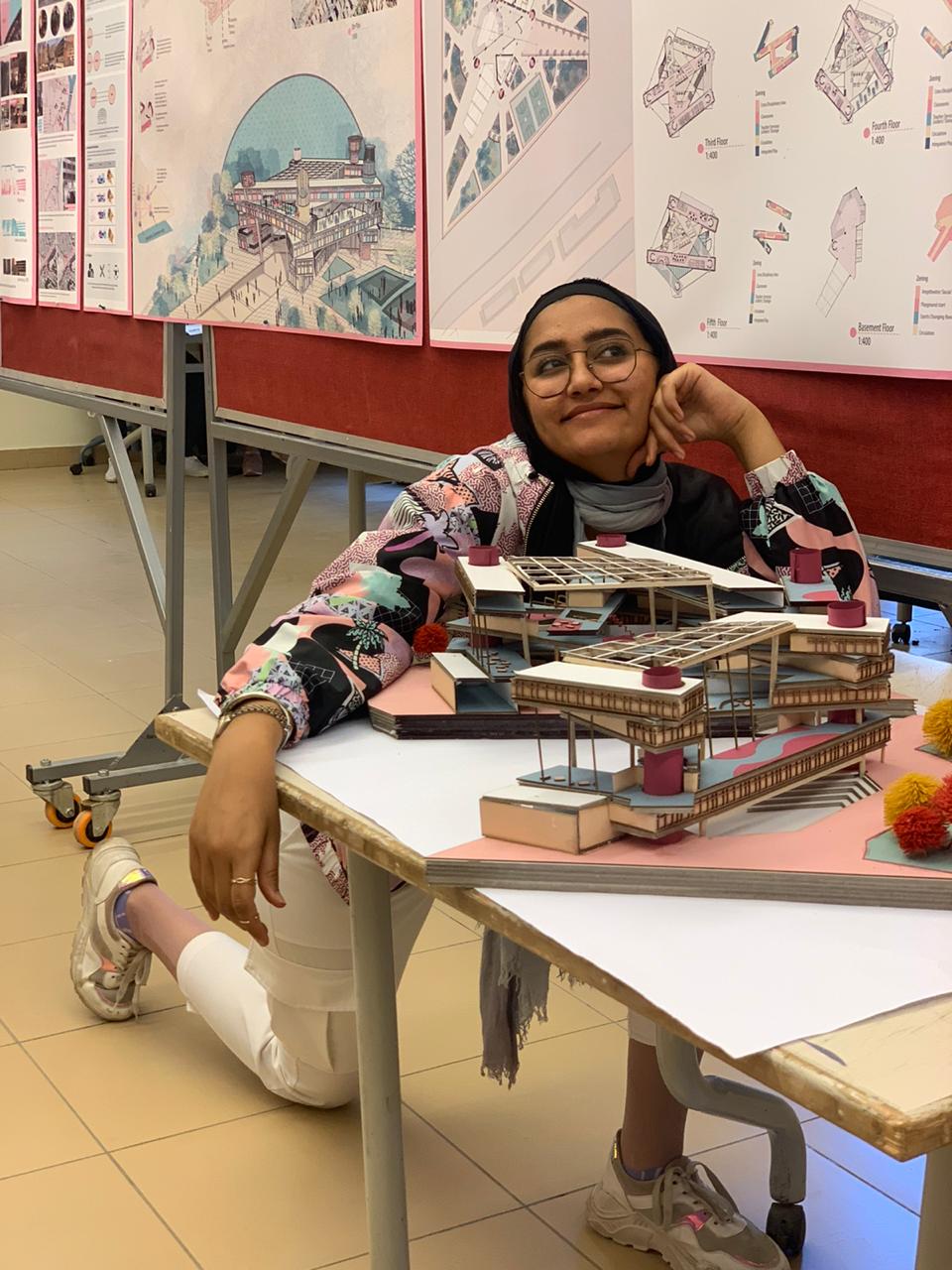
It also gave me a massive social presence that I have been utilizing ever since for my career and my business, although I like to think about my social presence and my career as two separate entities. I still don’t know how they fall together to create the big picture for me, because of the stigmas around influencers and so and so I don’t want to be categorized as that.
I still try to separate them, but God knows I really can’t do that. I have to just find a way and find the inner peace to realize I’m both those people simultaneously. I can joke on social media all day and be silly and then go back home and tackle very important issues and study at Columbia and actually have a brain outside social media. So I think the social experiment really highlighted for me that I have that futile side that I shouldn’t hide and I should embrace and both of them coexist, and both of them are Sarah.
How do you imagine 2ool AMeme’s future?
Our future mission is we want to create social games that are built towards their audiences, fostering new ways where people can interact socially together. We want to take ‘el khoroga’ or ‘el lamma’ (the outing or gathering) to the next level. How can we make any khoroga much better? And how can we make any lamma have so much more laughter, so much more joy, so much more excitement? This is our end goal. And this is what we’re doing.
We’re currently working on a new game that I cannot reveal yet, but it’s something that is completely new of its kind. This, we think, could be a big game-changer in the world of entertainment and not just in Egypt. We’re really thinking big with the next one, so stay tuned for that.
You can keep up with Sarah Abouelkhair at her personal Instagram page @sarahabulkhair and you can check out 2ool AMeme @2oolameme.
This article is part of our ongoing initiative, Spotlight Sundays where we hope to celebrate different Egyptians from the community.
If you’d like to be featured or have any other enquiries, please email us at: [email protected]




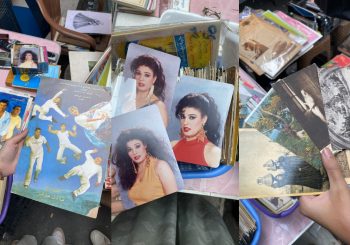
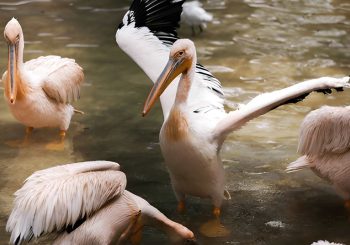
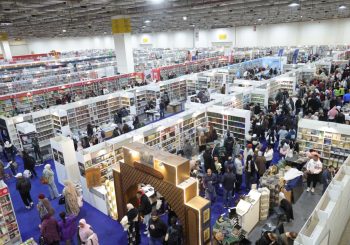
Comments (2)
[…] Meet One of the Minds Behind Egypt’s Best-Selling Card Game: Sarah Abouelkhair […]
[…] Read More: Meet the Face Behind Egypt’s Best-Selling Card Game: Sarah Abouelkhair […]